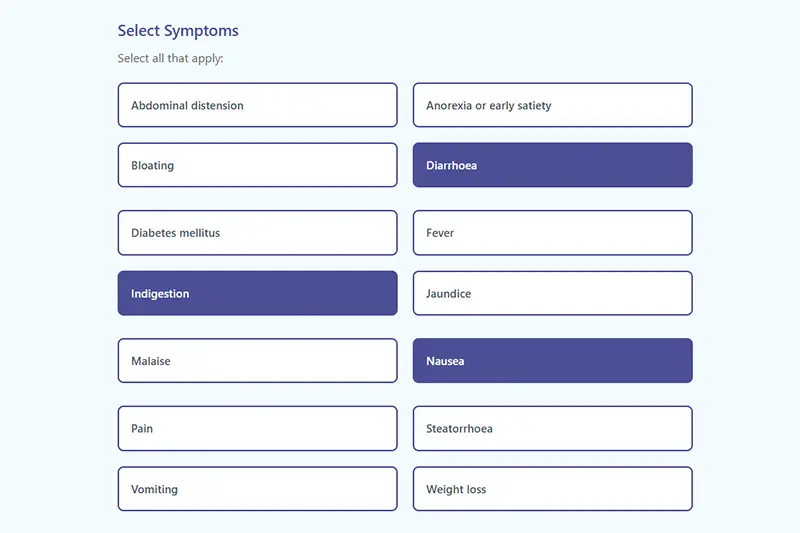The Jreissati Pancreatic Centre at Epworth has launched an interactive decision support tool to help General Practitioners (GPs) investigate when symptoms may be linked to pancreatic cancer.
Pancreatic cancer is the third leading cause of cancer deaths in Australia and has the lowest survival rate of all major cancers, with only 13% of patients surviving five years after diagnosis. Survival improves significantly when the disease is found earlier, but diagnosis can be difficult because symptoms are often vague and uncommon in general practice.
The interactive tool is designed to be simple to use during a standard consultation. GPs select the patient’s symptoms and risk factors, and the tool guides them through appropriate next steps. It helps assess whether urgent investigation is required or whether it may be appropriate to monitor and follow up. Based on the information entered, it suggests specific actions such as ordering blood tests, arranging scans, or referring to a specialist.
One GP who trialled the tool said:
It’s helpful to know what tests specialists are expecting us to have done before referring.
The tool is based on a clinical framework developed by a panel of Australian experts in pancreatic cancer. It is designed to be practical, easy to use in a standard consultation, and freely available on the Jreissati Pancreatic Centre’s Resources page for Health Professionals.
Professor Andrew Metz, Director of the Jreissati Pancreatic Centre, said the tool provides helpful guidance in complex situations.
This tool supports GPs with clear, evidence-based guidance to help decide when further tests might be appropriate. It provides structure and reassurance when symptoms are unclear or overlap with other conditions.
The project was made possible through the generous support of the Epworth Medical Foundation and the Telematics Trust.
The Jreissati Pancreatic Centre is committed to supporting GPs through education and practical resources. Earlier this year, the Centre distributed more than 1,000 GP education packs to clinics across Australia. These included 3D pop-up models of the gastrointestinal tract, posters highlighting pancreatic cancer risks and symptoms, and other resources for use in clinical practice. The Centre will also host its third annual GI for GPs Symposium in October 2025 to support shared learning between specialists and GPs.



